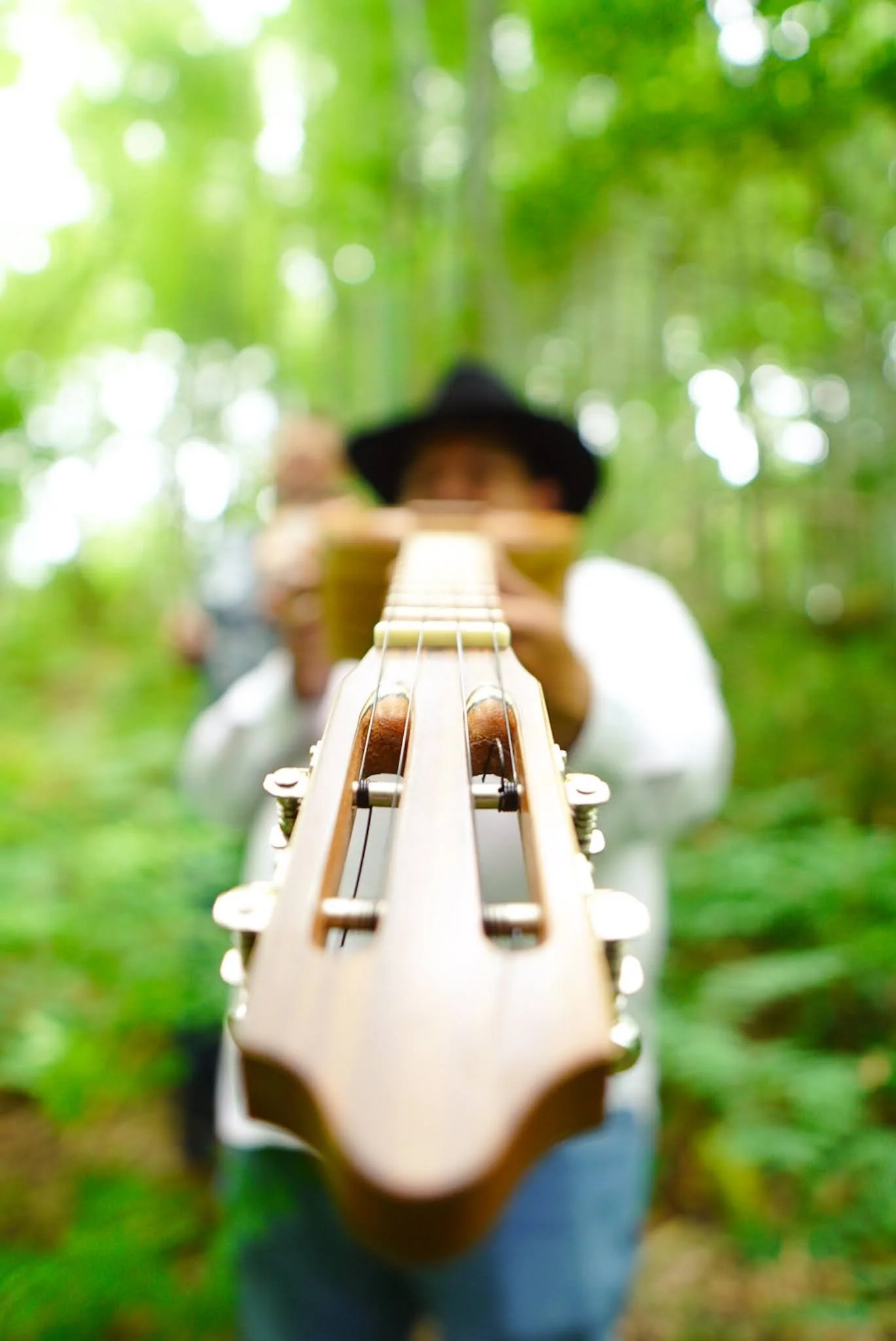Brett Villena
Larry Bellorín grew up in Punta de Mata in the state of Monagas, Venezuela.
His mother, a poor farmworker, raised him. By age 6, he became a shoe shiner and built a faithful clientele by singing as he polished, taking requests for the popular Vallenatos of the day. He eventually caught the attention of a local music educator who invited him to study at the city’s premiere music school.
Larry’s first instrument was the cuatro, a 4-string guitar with Spanish roots central to the Venezuelan identity and typically the first instrument a folk musician is taught there. Cuatristas strum out complex polyrhythms at dizzying speeds as accompaniment for vocalists and harpists. Larry quickly excelled and by age 11 was supporting himself through music alone. He soon became proficient on guitar, electric bass, mandolin and maracas as well. By age 13, he was well-versed in the folk music of his region (valse, pasaje, joropo, música oriental) and was honored as first cuatrista for the local Casa de Cultura.
After filling in on cuatro for a friend on a gig at a local pizzeria, Larry met an authentic llanera harpist named Urbino Ruiz, who immediately took him under his wing as an apprentice. After only a month of tutelage, Larry had a repertoire of 40 songs. “I played so much, I would wake up hunched over my harp,” he recalls.
In 1999, Urbano invited Larry to perform with him alongside Venezuelan cultural treasure Renaldo Armas at the Punta de Mata’s Parque Ferial. After playing, Armas, a GRAMMY winner and the country’s most well known champion of Llanera music, introduced him to the crowd of more than 8,000 people as “el maestro Larry Bellorín.”
From that point forward, Larry was respected as such.
Larry went on to accompany countless Venezuelan musical luminaries including Cristina Maica, Teo Galindez, and Rumi Olivo. While touring the country as a performer, he and his wife opened Casa Vieja, a school dedicated to teaching Música Llanera. In three years, he taught nearly five hundred students and launched Monagas’ first Musicá Llanera festival.
In 2012 Venezuela began to collapse, and it became impossible to maintain a music school. Poverty and violence reached unprecedented extremes, and new political realities threatened Larry and his family’s lives. He decided to go to the United States in search of work and asylum for his family. He arrived with only thirty dollars and slept on the floor of an unfurnished room while doing construction day labor. His wife and young daughter eventually joined him. Having faced political persecution, they were able to open a case for asylum. Eight years later, their asylum case is still pending.
Prior to the pandemic, Larry was beginning to find work as a musician in North Carolina, playing bass in Salsa bands and booking his own Venezuelan folk group across the state. But the pandemic’s restrictions on social gatherings ended those opportunities, and Larry returned to full time construction work.
In December 2021, he met GRAMMY-nominated Latingrass multi-instrumentalist and songwriter Joe Troop, bandleader of the now-disbanded Che Apalache. It was musical love at first sound, and the two quickly formed the Venezuelan-Appalachian folk fusion duo Larry & Joe.
Larry & Joe has become Larry’s principle project, and he quit his job in construction in January 2023 to tour nationwide with Joe. When not on the road, he occasionally plays gigs with other projects in North Carolina. More than anything, he enjoys spending time with his wife Athais, daughters Esther and Ivanka, and other family and friends. He thanks God every day for the opportunity to share his music with the world.
Zion McKnight

